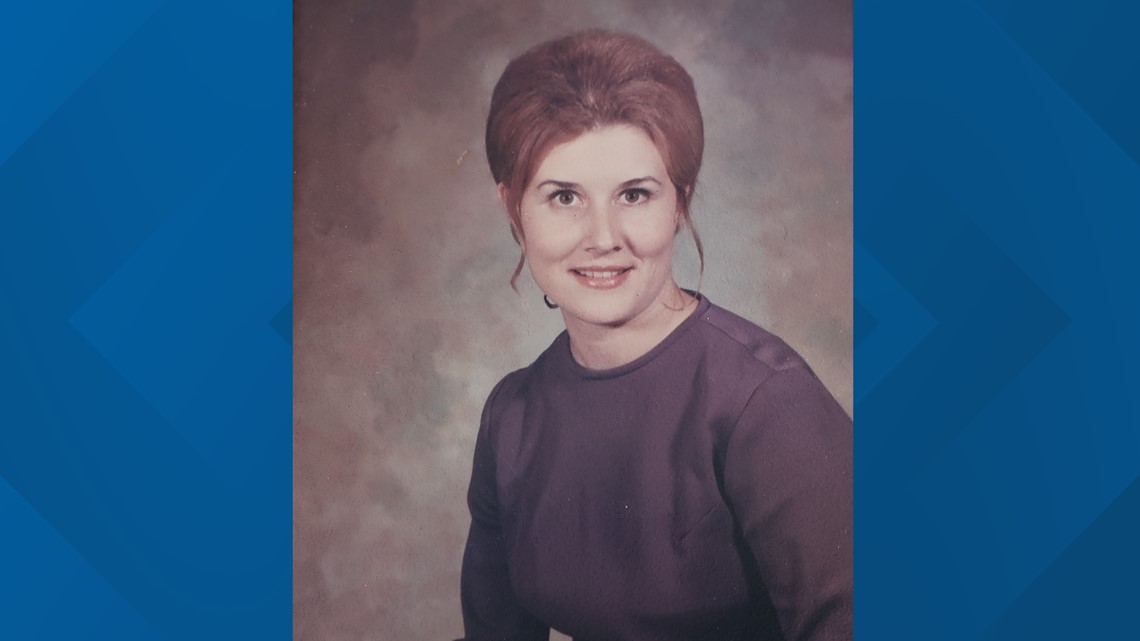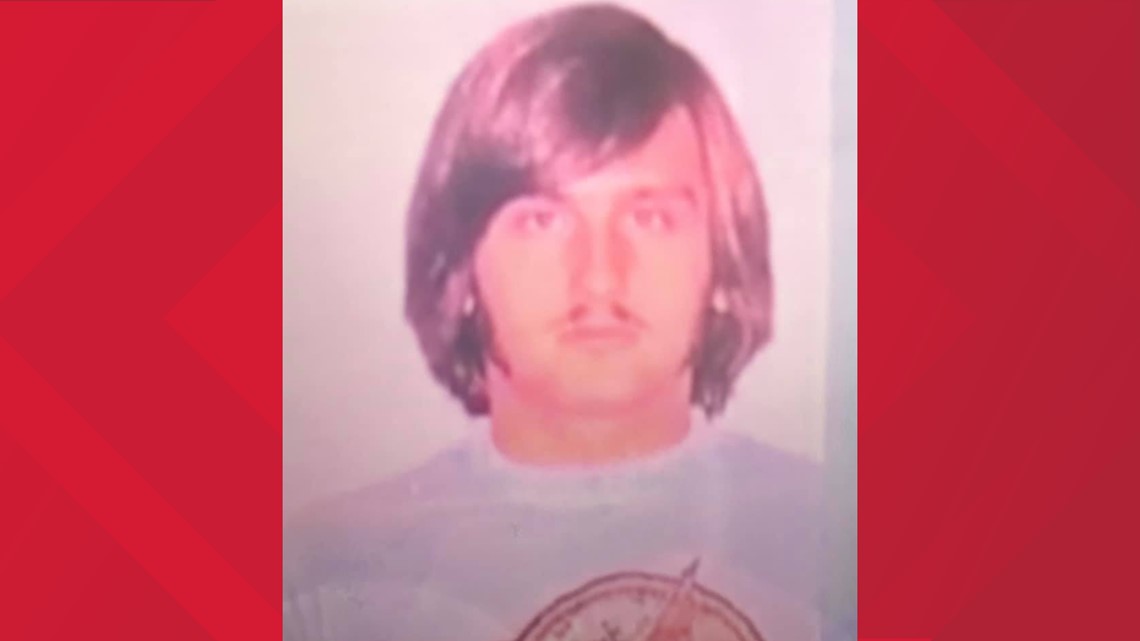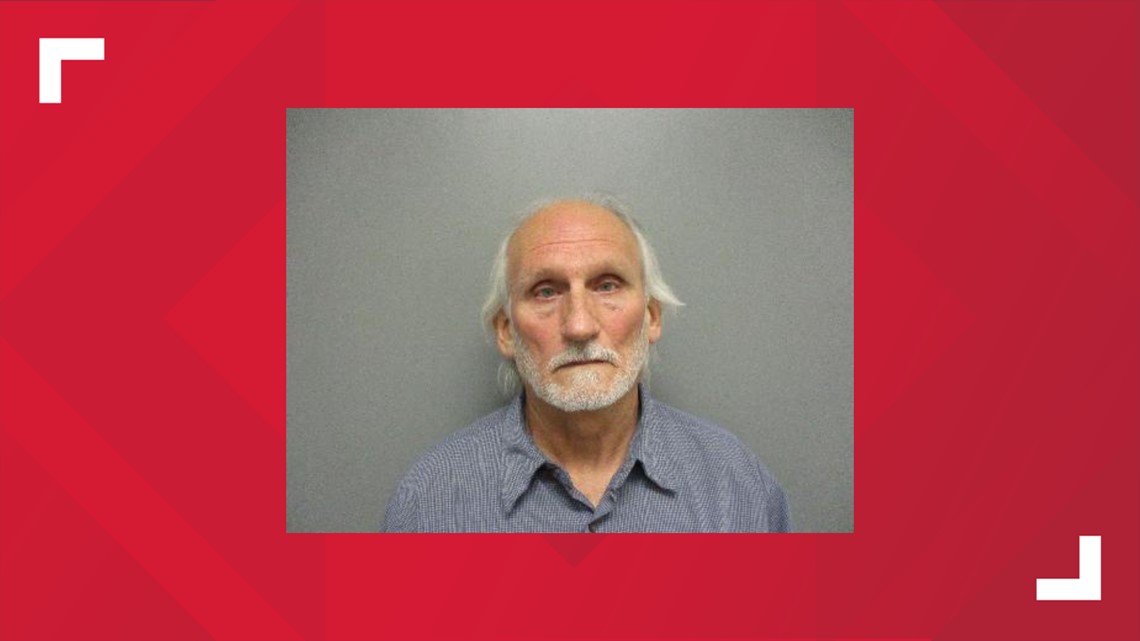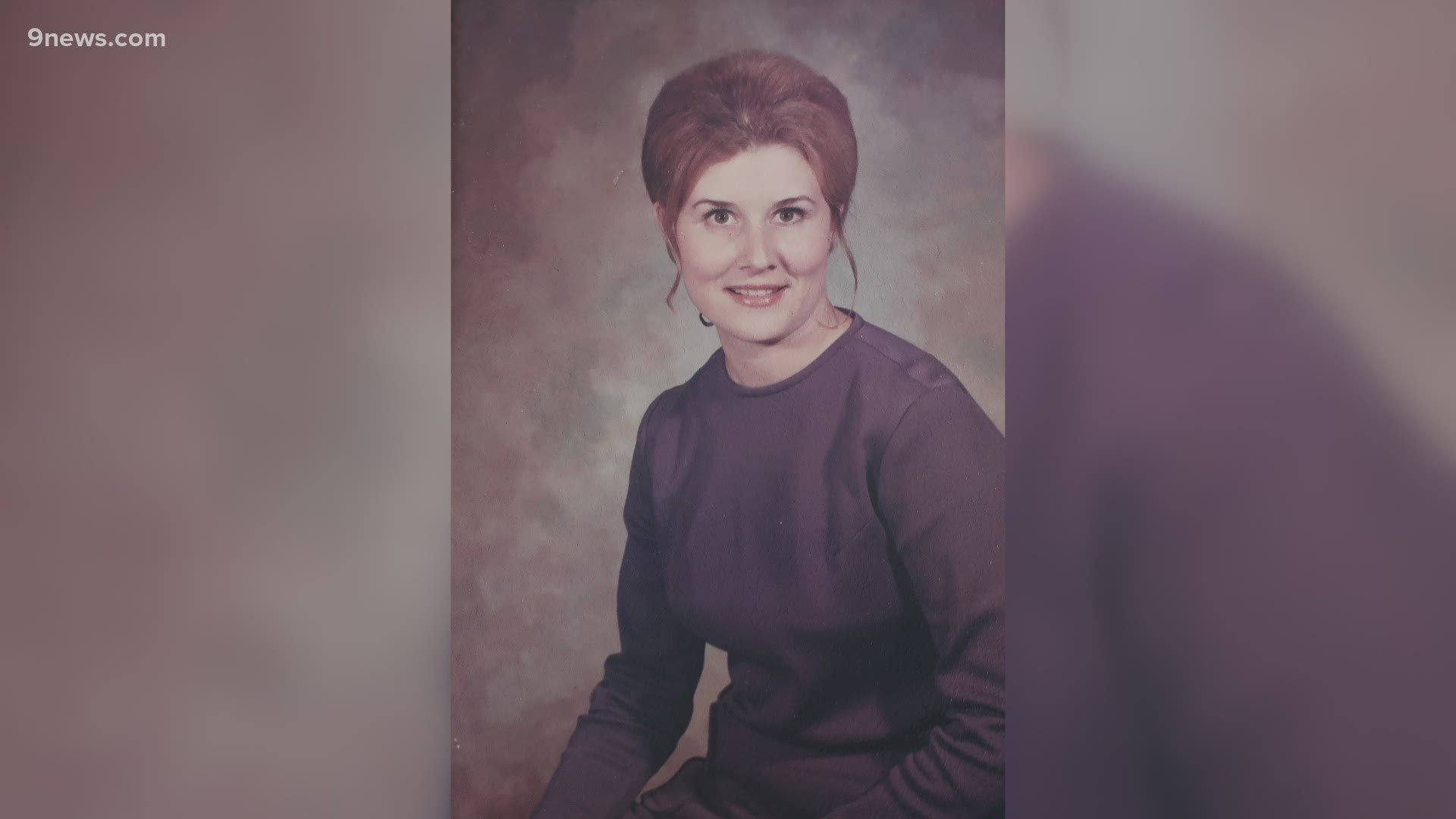CHERRY HILLS VILLAGE, Colo. — A relatively new technology known as genetic genealogy helped investigators with the Cherry Hills Village Police Department identify and arrest a Nebraska man for the brutal sexual assault and murder of Sylvia Quayle in 1981.
"It's been a journey, and then getting to know Jo, and understanding, being a little sister and what Sylvia meant to her, it's been a little breathtaking," said CHVPD Chief Michelle Tovrea who shared the news of the arrest with Quayle's sister and brother-in-law.
"Sylvia's sister and family had the quote 'beauty seen is never lost' etched onto her grave marker a very fitting reminder of the beautiful person she was."
Quayle, 34, who was a graduate of Englewood High School, was killed likely by someone who broke into her home either late on Aug. 3 or in the early morning hours of Aug. 4, 1981, according to police.
Investigators noted, in an affidavit, that the phone line into her home had been cut and the screen to a bathroom window had been removed and was found about 75 feet from the home in some tall weeds.
Outside the home, below the window, police found several items that appeared to be from the bathroom, according to an arrest affidavit. There was also a small pry mark on the bottom of the wooden window frame.


According to an arrest affidavit, she spoke with her younger sister around 11 p.m. on Aug. 3 and was found dead by her father who lived nearby shortly before 8 a.m. on Aug. 4 inside her home in the 3800 block of S. Ogden Street.
That document says Quayle was found naked on the living room floor of her home. Investigators who responded to the scene said her hands were covered in blood and she appeared to have broken fingernails and "visible red marks" on her neck that appeared to be "consistent with the shape of fingers."
"To meet, Sylvia's family today means a lot to me," said Mitch Morrisey, whose company United Data Connect was key to solving the case. "When I read this case and I realized that her father found her in the condition that I know she was in. The way that she was left after being brutalized, and killed, I can't imagine as a father myself of a young woman about this age to have a morning like that."
Quayle's parents are no longer alive and Tovrea said Quayle had a very close relationship with them.
"She loved her little sister very much," said Tovrea."She had a wonderful loving relationship with her parents and had coffee with them every morning. They missed her deeply."
The suspect
The coroner determined that Quayle had been stabbed multiple times in the chest and shot in the head, according to the document. Her cause of death was listed as blood loss due to the wounds that pierced her heart and lungs with a gunshot wound listed as a secondary cause of death.
Quayle was also sexually assaulted and in 2000 a DNA sample of the suspect was submitted to the Colorado Bureau of Investigation to the FBI Combined DNA Index System (CODIS). That sample remained unidentified until Jan. 29 of this year when it was matched to David Dwayne Anderson, according to CHVPD.


A year ago, in January 2020, CHVPD began working with United Data Connect, a genetic genealogy company. They became involved in this case after a suspect was identified in a Jefferson County cold case.
"There's a young DNA analyst, up there, she used worked to work in Denver, and she said Mitch, if you have a slot I worked on a case, we worked with CBI, it's a homicide down in Cherry Hills and if you would contact Detective [Lenny] Abeyta, I'm sure he would love your help," said Mitch Morrissey who founded United Data Connect.
That conversation set in motion meeting with members of the CHVPD including the chief and Abeyta, and in May 2020, the company provided the department with a lead about the potential source of the unknown male DNA after samples from the crime scene were uploaded to two public DNA databases, including GED Match and Family Tree DNA.
On Jan. 17, 2021, a United Data Connect Investigator traveled to Cozad, Nebraska to secretly collect DNA from Anderson, the affidavit says.
That investigator recovered two separate trash bags that were abandoned in the apartment complex dumpster where Anderson lived, according to the affidavit. Inside the bags was mail and bills belonging to Anderson, the affidavit says, and about 15 items were collected for potential DNA testing.
On Jan. 22, 2021, the following items were submitted for DNA testing:
- Vanilla Coke can
- Great Value water bottle
- Spiced Rum bottle
- Michelob Ultra Bottle
A week later on Jan. 29, lab results showed that DNA from the Vanilla Coke can matched multiple items that were found at the Quyale crime scene.
CHVPD requested an arrest warrant for Anderson who was later arrested on Feb. 10 in Nebraska.
According to online court records, Anderson waived extradition. He appeared in court in Dawson County, located in west-central Nebraska, Wednesday morning. Police arrested him Feb. 10 near Cozad, a town of about 3,800 people in west-central Nebraska.
He has since been moved to Colorado and is scheduled to appear in court on Monday.
Records show his most recent address is in North Platte, about 45 miles from Cozad.
Watch the press conference announcing the arrest below:
According to online court records, Anderson faces two counts of first-degree murder. One alleges Quayle was killed after deliberation; the other alleges she was killed in the commission of another felony.
He'll be prosecuted under laws that were in place in 1981 which is when the crime occurred, according to District Attorney John Kellner. That means if convicted of a first-degree murder charge Anderson would be sentenced to life in prison, but with the chance for parole after 20 years. Current laws do not allow for parole.


Quayle's killing was thought to have been solved once before.
In 1983, drifter Ottis Elwood Toole confessed to killing Quayle and was formally charged with first-degree murder. Toole -- who along with companion Henry Lee Lucas confessed to scores of killings -- recalled for Colorado Bureau of Investigation (CBI) officials details of the crime, describing trees and hedges around Quayle's home.
However, authorities came to question numerous confessions Toole made, and many cases were eventually dropped.
Then-Arapahoe County District Attorney Bob Gallagher dropped the charges in 1993 after testing showed that Toole's DNA did not match genetic material believed to have been left at the scene by the killer.
CBI records show Anderson was arrested multiple times between 1976 and 1988 and has spent time in prison in Colorado. His first arrest occurred Feb. 11, 1976, in Cherry Hills Village on an unspecified traffic charge, according to CBI records.
He was arrested twice on burglary charges in June 1981, once in Arvada and once in Arapahoe County. In October 1981, two months after Quayle's murder, Jefferson County sheriff's deputies arrested Anderson on a burglary charge, and records show he was sentenced to three years in state prison.
Other arrests on his record include two in 1982, once in Englewood on burglary charges, and once in Adams County on burglary and public orders crimes; once in 1984 in Logan County on burglary charges; two in 1985, once in Arapahoe County on a probation violation and failure to appear warrant and once in Federal Heights on a burglary charge; one in 1986 in Adams County on burglary and trespassing charges; and one in 1988 on escape charges.
Metro Denver Crime Stoppers
Anyone with information is asked to call Crime Stoppers at 720-913-7867 or visit metrodenvercrimestoppers.com. Tipsters can remain anonymous and may be eligible for a reward of up to $2,000.
Metro Denver Crime Stoppers works by assigning a code to people who anonymously submit a tip. Information is shared with law enforcement, and Crime Stoppers are notified at the conclusion of the investigation.
From there, an awards committee reviews the information provided and, if the information leads to an arrest, the tipster will be notified. Rewards can be collected using the code numbers received when the tip was originally submitted.
> More information about Metro Denver Crime Stoppers can be found here.
> Additional Crime Stoppers bulletins can be found here.
SUGGESTED VIDEOS: Investigations from 9Wants to Know

